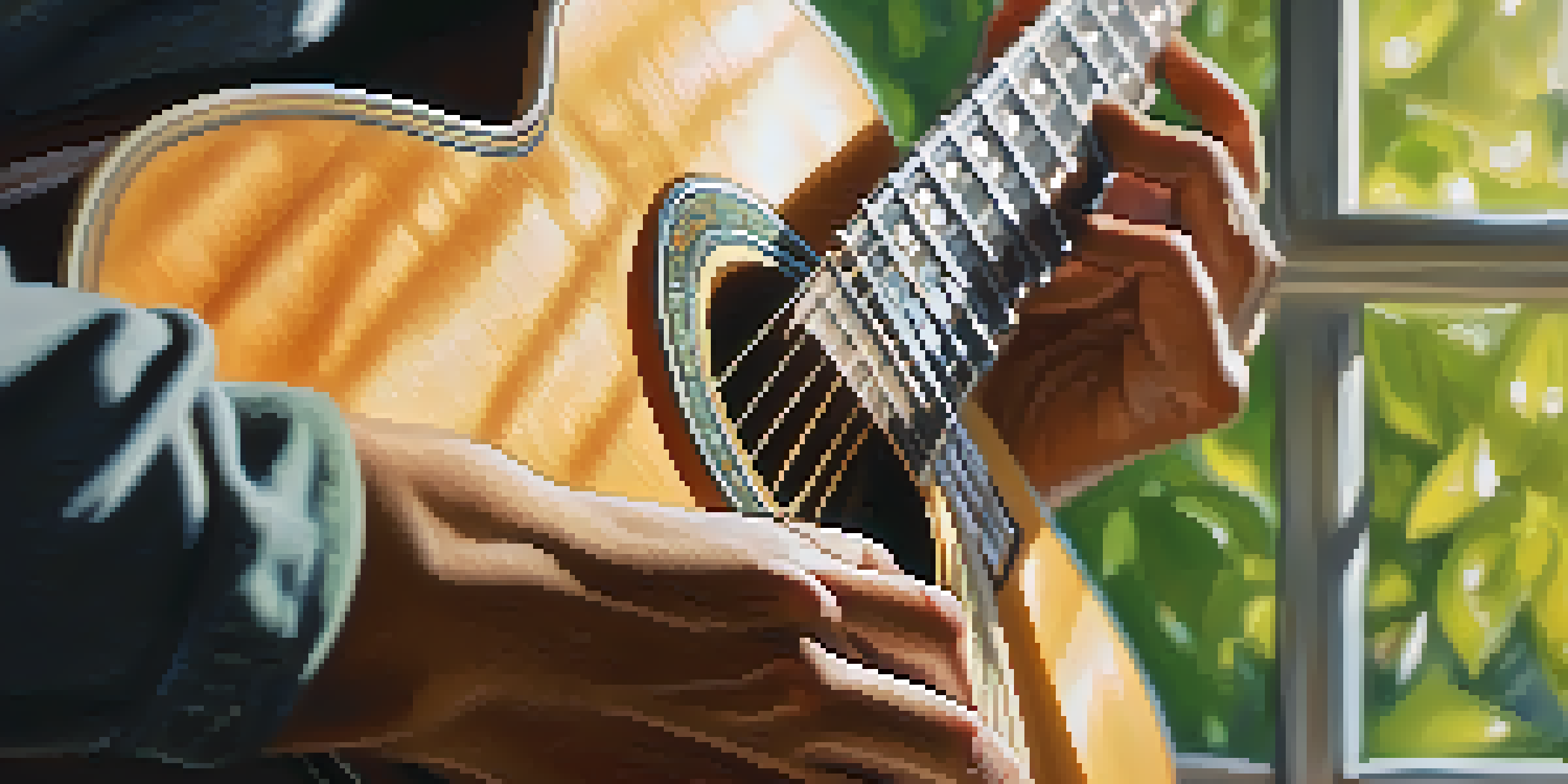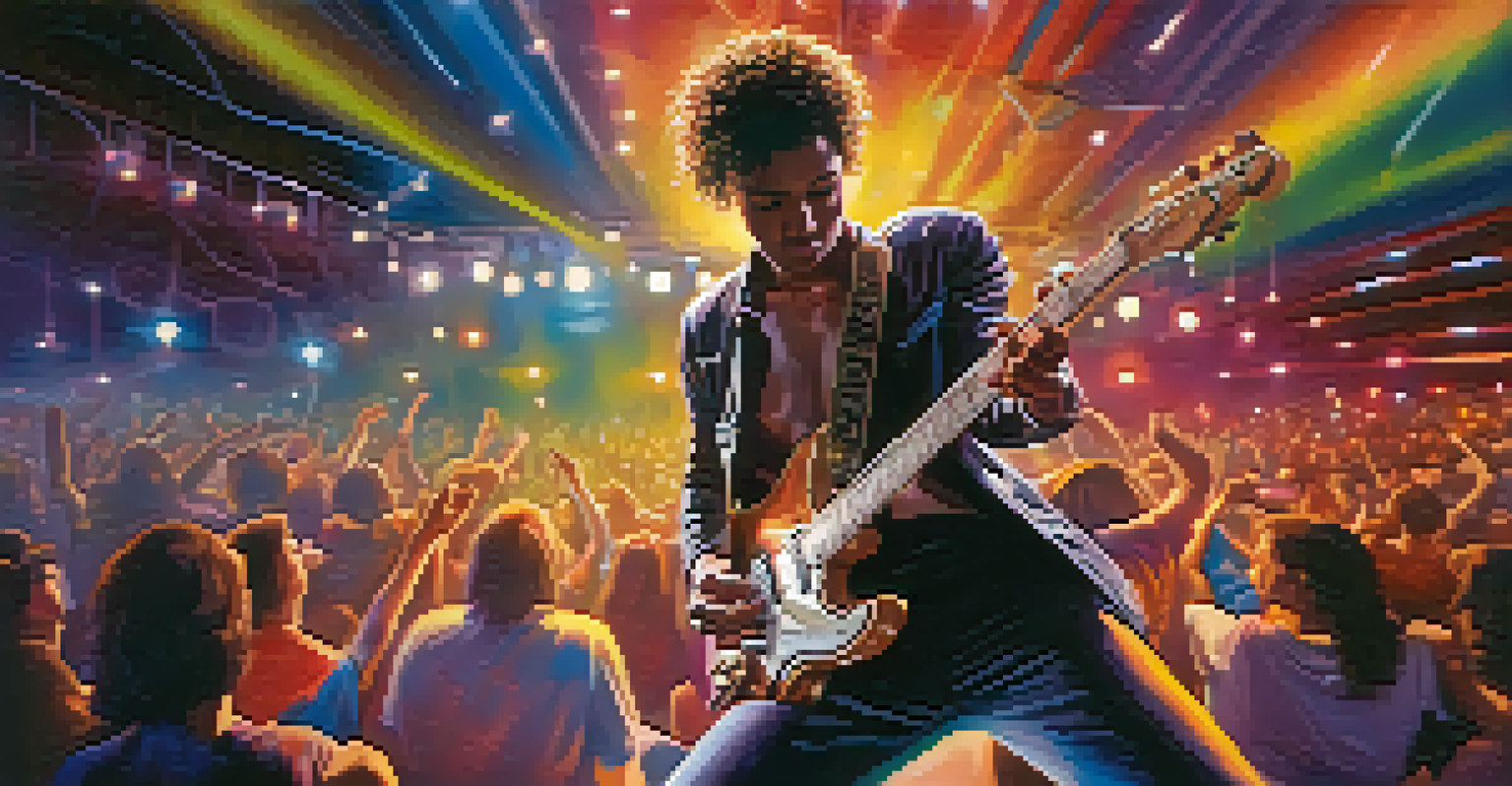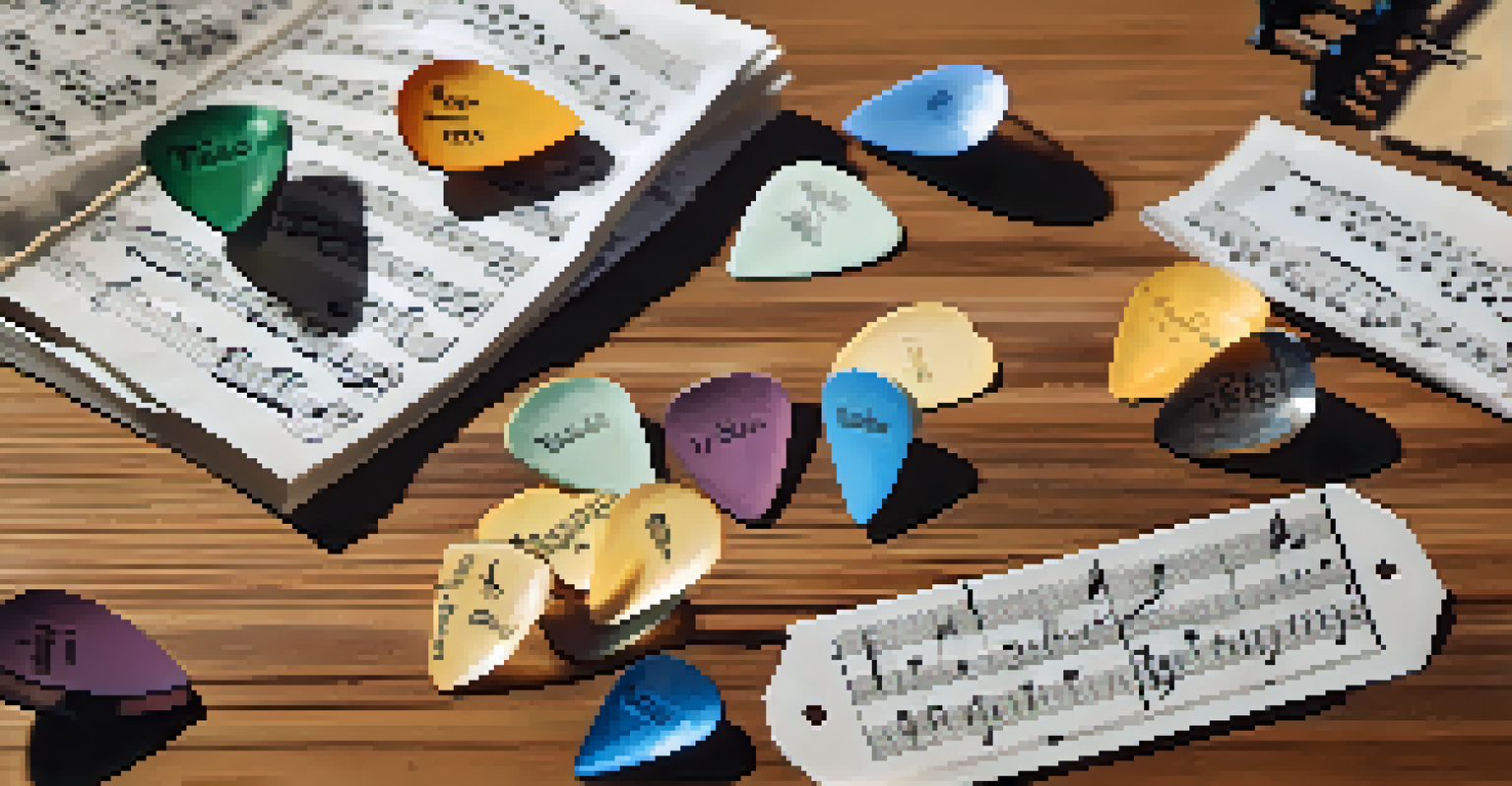The Role of Guitar in Creating Emotional Film Scores

Understanding the Emotional Impact of Music in Film
Music is a powerful tool in film, evoking emotions and enhancing storytelling. It can transform a scene, making viewers feel joy, sadness, or tension. The right score helps audiences connect with characters, drawing them deeper into the narrative.
Music can change the world because it can change people.
Among various instruments, the guitar stands out for its versatility and expressive capabilities. Whether it’s a soft acoustic strumming or a heavy electric riff, the guitar can convey a wide range of emotions. This unique ability makes it a perfect choice for film composers.
When paired with visuals, guitar music can create memorable moments that resonate with viewers long after the credits roll. Think of iconic scenes, like a heart-wrenching farewell or an exhilarating chase, where the guitar amplifies the emotional weight.
The Versatility of the Guitar in Film Scores
One of the guitar's greatest strengths is its adaptability. It can fit into various genres, from romantic dramas to action-packed thrillers. This flexibility allows composers to use the guitar in innovative ways, whether it’s to create suspense or an intimate atmosphere.

For instance, in films like 'Inception,' the electric guitar adds a layer of urgency and tension. In contrast, a folk-style acoustic guitar can evoke nostalgia and warmth in a romantic scene. This range makes the guitar a beloved choice among film score composers.
Music Shapes Emotional Storytelling
The right musical score, especially with guitar, enhances viewers' emotional connection to film narratives.
Moreover, the guitar can blend seamlessly with other instruments, enriching the overall sound. This interplay creates a dynamic auditory experience that keeps audiences engaged and emotionally invested in the film.
Cultural Significance and Its Influence on Emotion
The guitar carries cultural significance across various genres and regions, making it relatable to diverse audiences. From the blues of the American South to flamenco in Spain, its sound can invoke specific feelings tied to cultural backgrounds.
The guitar is a small orchestra. It is polyphonic. Every guitar is a different color, a different voice.
For example, a Spanish guitar can transport viewers to a sun-soaked landscape, enhancing the emotional connection to a character’s journey. Similarly, a blues riff can evoke feelings of struggle or longing, particularly in dramas.
By tapping into these cultural associations, filmmakers can create richer narratives. The emotional resonance of the guitar helps ground the story in a relatable context, making the audience feel a deeper connection.
Iconic Film Scores Featuring the Guitar
Several iconic film scores showcase the guitar's emotional depth. Take 'The Good, the Bad and the Ugly,' where the electric guitar's haunting melodies create an unforgettable atmosphere. This score has become synonymous with Westerns, underlining the power of the guitar in film.
Another example is 'The Shawshank Redemption,' where the use of acoustic guitar during poignant moments elevates the emotional experience. The gentle strumming captures the essence of hope and friendship, making it one of the most memorable scores in cinema.
Guitar's Versatility in Film Scores
The adaptability of the guitar allows it to be effectively used across various film genres, enriching the overall sound.
These examples illustrate how skilled composers weave guitar melodies into the fabric of storytelling. The emotional weight of these scores lingers, proving the guitar's lasting impact on film music.
Techniques for Creating Emotional Guitar Scores
Composers use various techniques to evoke emotions through guitar music. Techniques like fingerpicking and slide guitar can create distinct sounds that convey specific feelings. For instance, fingerpicking often produces a softer, more intimate sound, perfect for romantic scenes.
Additionally, the use of dynamics plays a crucial role in emotional expression. Composers might choose to build up intensity gradually or pull back for a more reflective moment, guiding the audience's emotional journey.
These techniques, coupled with thoughtful composition, allow for a rich tapestry of sound. The careful crafting of guitar scores can lead to powerful emotional responses from viewers.
The Collaboration Between Composers and Guitarists
Collaboration between composers and skilled guitarists can elevate the score's emotional impact. Composers often rely on the guitarist's expertise to bring their vision to life, experimenting with different sounds and styles.
This partnership allows for a more nuanced approach to scoring. Guitarists can suggest creative ideas that enhance the emotional narrative, making the music feel more authentic and relatable.
Cultural Influence on Emotional Depth
Guitar music carries cultural significance that evokes specific emotions, enhancing audience connection to characters and stories.
Through this collaborative process, the score becomes a true reflection of the film's emotional landscape, enriching the viewer's experience and deepening their connection to the story.
Future Trends: The Guitar's Evolving Role in Film Scores
As technology evolves, so does the role of the guitar in film scores. With the rise of digital music production, composers can create innovative soundscapes that blend traditional guitar sounds with electronic elements, expanding the emotional palette.
This fusion opens new avenues for storytelling, allowing filmmakers to explore different emotional depths. Imagine a futuristic film score that incorporates a traditional guitar riff alongside synthesized sounds, creating a unique auditory experience.

The ongoing evolution of the guitar in film music will undoubtedly lead to exciting collaborations and new styles. As composers continue to experiment, the emotional power of the guitar will remain a cornerstone of film scoring.